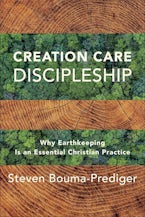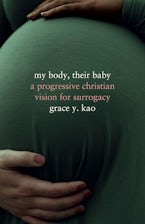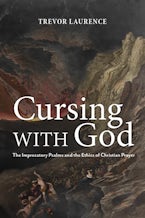- Home
- religion
- literary criticism
- Middle-earth and the Return of the Common Good

Middle-earth and the Return of the Common Good
J.R.R. Tolkien and Political Philosophy
By: Joshua Hren
212 Pages
- Paperback
- ISBN: 9781532611193
- Published By: Cascade Books
- Published: October 2018
$26.00
Joshua Hren offers an examination of political philosophy through the lens of J.R.R. Tolkien’s Middle Earth in Middle-earth and the Return of the Common Good: J.R.R. Tolkien and Political Philosophy. Hren seeks to “demonstrate the applicability of Thomas Aquinas’ political philosophy to J.R.R. Tolkien’s legendarium”(1). He does not argue that Tolkien intentionally, or even consciously, wrote this political philosophy into his works. Rather, Hren attempts to find in Tolkien’s work examples of the philosophy. Hren engages other authors who have previously written on the topic throughout the book, generally critiquing their thought, and offering his work as a corrective to what he perceives as inaccurate presentations of Tolkien’s thought. Hren concludes his introduction by declaring the premise of this book, which is, that “we are ‘meant to see’ political things as intractably bound to Thomistic understanding of the common good” (23).
Throughout the first chapter Hren references Tolkien’s political philosophy in contrast to Georg Wilhelm Friedrich Hegel’s philosophy. First, Hren argues for the importance of the gift of death in Christianity, since it “spurs the soul toward an emulation of the divine” (24). As man seeks to conquer the natural world with machines, he is separated from this natural occurrence—to his own detriment—as individualism increases at the expense of the common good. In contrast, with the “world-historical individuals” of Hegel, the fictional Frodo Baggins, after expending himself in service, finds its “fruition in the Undying Lands, the paradisiac land which in Tolkien’s world most embodies being qua being” (28). Frodo embodies Tolkien’s response to Hegel. The wheels of history are moved “not by the Lords and Governors, even gods, but by seemingly unknown and week” (28). For Tolkien, fantasy enables escape from the modern bourgeois world so focused on facts in order to regain a clear view of principles. Hren sees the distinction between Tolkien and Hegel’s view of reality and fantasy, stating that, “Tolkien is content with the fact that the eucatastrophe of fairy stories offers a ‘far gleam or echo of evangelium in the real world.’ Hegel, and Saruman [the White], demand that ‘the reality of existence will be eclipsed and replaced by the Second Reality of the imaginative project’” (47).
In the second chapter, Hren compares Tolkien’s and Plato’s ideal polities. Plato’s polities of Atlantis, an order of power and wealth, and Athens, an order of wisdom without decline, are compared with Tolkien’s division of “two movements within the one land of Númenor” (53). Hren delves into the contrast between justice, reason, free will, and power—as seen in these ideal polities. Plato’s ends in tragedy, whereas Tolkien’s end in eucatastrophe, denying final defeat when given a glimpse of the joy to come.
The third chapter posits the rather interesting theory the bourgeois are of the same kind as burglars, focusing on the character of Bilbo Baggins as an example of this. For Hren, the bourgeois are those who insist on “the hard facts and comfort” (66). The bourgeois are characterized by perpetual change and a small minded leadership restricted to ledgers and accounting rather than to the whole person, leaving them “ill equipped, then, to countenance social and political problems of any importance” (73), exemplified in the character of the Master of Lake-Town. Citing Werner Sombart’s The Quintessence of Capitalism: A Study in the History and Psychology of the Modern Business Man (E.P. Dutton, 1915), in which he “posits piracy, magic, and scheming as means of wealth acquisition characteristic of those that preceded and morphed into modern bourgeois culture” (75), Hren shows how Tolkien’s Bilbo Baggins illustrates each of these. Hren contends that the modern economy is based on “detrimental desires” and “acquisitive mimesis,” arguing that in its place we should have an economy of gift-giving, which cools “mimetic desire and [strengthens] the social bond with so much exchange” (105.)
In chapter 4, power and desire, as seen in Thomas Hobbes’ Leviathan or The Matter, Forme and Power of a Common-Wealth Ecclesasticall and Civil (1651) and Tolkien’s legendarium—the body of his mythopoeic writing that forms the background for The Lord of the Rings (Allen & Unwin, 1954)—are examined. Hren sees the Dark Lord “Melkor’s music [as] an apt mythical metaphor for Hobbesian ‘well-structured disorder’”, and yet, “though he [Tolkien] grants dramatic instantiations of the libdo dominandi and mimetic desire, he does not posit these as universally constitutive, does not deem them as psychologically key” (110). The corruption of Sauron and his rule over the Middle-earth realm of Mordor exemplifies Hobbes’ Leviathan for Hren.
Chapter 5 is the heart of Hren’s argument: for him, the common good stands in opposition to the exalted individualism of the modern age, in which persons either put their private good above the common good or equate it with the common good. Hren distinguishes between humanitarianism and pity, which is the result of sentiment “that does not demand any moral transformation,” and Christian love, which is either sacrificial love or charity, which aims at the Imago Dei found in every person and requires our own transformation. Our dignity is found in submitting our private good to the common good. Hren believes that the ideal of Kingship is better for the common good than democracy, citing Aquinas, who “contends that a single ruler is best able to ‘procure the unity of peace’” (151). Nor is it just any kingship that is portrayed, but it is the kingship of the Holy Roman Empire “that sits and reigns from the center of Tolkien’s legendarium” (157). For Hren, the return of the king leads to the return of the common good.
In Chapter 6 Hren seeks justify his use of the legendarium to illustrate Aquinas’ political philosophy. There are places where the use of the legendarium seems a stretch of Tolkien’s intentions. Hren does address this in the text, stating that although “the modern English bourgeoisie did not exist in the ancient past … the story communicates the circuitous way by which the contents of Middle-earth can have a ‘certain applicability’ to the events and personages of earth” (67). Adding later that “if the riddle game has other connotations, and we cannot reduce the riddle game to its correlation with skills typical of nascent capitalist acquisition, neither should we dismiss the correlation’s significance”(89.) With frequent passing references to both numerous philosophers and to Tolkien’s legendarium, Hren’s Middle-earth and the Return of the Common Good appeals to a rather niche market, namely, Thomistic philosophers who appreciate Tolkien’s legendarium.
Marie Nuar is Adjunct Professor of World Religions at the Catholic Distance University.
Marie NuarDate Of Review:September 4, 2019
Joshua Hren is Assistant Director of the Honors College at Belmont Abbey, teaching and writing at the intersection of political philosophy, theology, and literature. He also serves as editor of Dappled Things: A Quarterly of Ideas, Art, and Faith, and as Editor-in-Chief of Wiseblood Books. Joshua has published scholarly articles in such journals as Logos: A Journal of Catholic Thought and Culture, poems in First Things, and a collection of short stories, This Our Exile.











